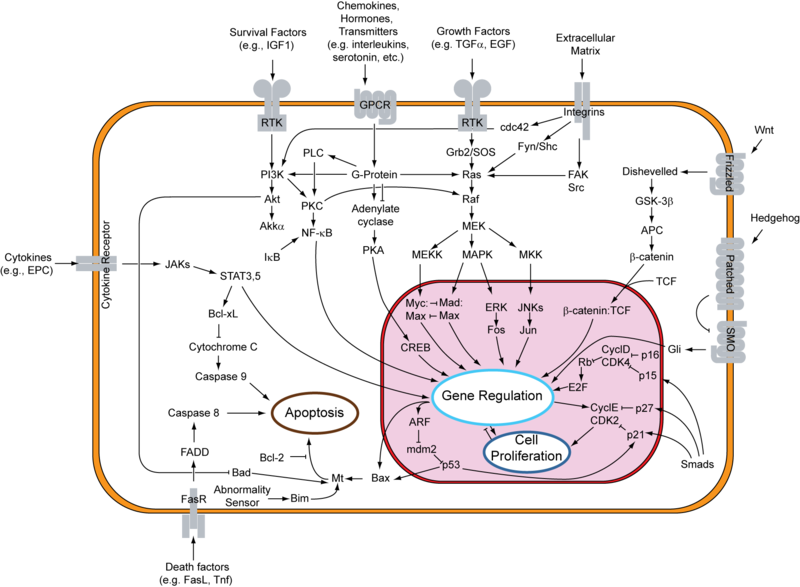Nestin (neuroepithelial stem cell protein) is expressed in immature endothelial cells, and we here introduce coexpression of Nestin and Ki-67 as a novel angiogenesis marker on tissue sections. Including vascular endothelial growth factor (VEGF)-A and hypoxia-inducible factor-1alpha (HIF-1alpha) expression, we studied relation to disease progression in prostate cancer. Different patient series were included. Sections from 104 radical prostatectomies with long follow-up, 33 castration-resistant prostate cancers, 28 nonskeletal metastases, 13 skeletal metastases, and 41 benign prostatic hyperplasias were immunostained for Nestin/Ki-67, VEGF-A, and HIF-1alpha. Vascular proliferation by Nestin/Ki-67-positive vessels was counted within "hotspot" areas. Median vascular proliferation counts were 4- to 5-fold higher in castration-resistant prostate cancers and metastases versus localized cancers and prostatic hyperplasias (P < 0.0005). Among localized cancers, high vascular proliferation was significantly related to adverse clinicopathologic features and was a strong and independent predictor of biochemical failure (P < 0.005), clinical recurrence (P = 0.005), and skeletal metastasis (P = 0.025) in multivariate analysis. Castration-resistant cancers were characterized by reduced VEGF-A and increased HIF-1alpha expression, and vascular proliferation was associated with reduced patient survival in this group. Thus, vascular proliferation was of independent prognostic importance among prostate cancers. When compared with localized cancers, vascular proliferation was significantly increased in castration-resistant cases and metastatic lesions. The castration-resistant tumors exhibited weak VEGF-A but strong HIF-1alpha expression. These novel data might have an effect on clinical evaluation and treatment of prostate cancer patients.
Clin Cancer Res. 2009 Jun 1;15(11):3654-62. Epub 2009 May 26
Gravdal K, Halvorsen OJ, Haukaas SA, Akslen LA.
Subscribe to:
Post Comments (Atom)
Signal Transduction Pathways

RTK, GPCR, GF, Cytokine, Wnt, Death Factors & Shh pathways
No comments:
Post a Comment